Homeopathy, a system of medicine more than 200 years old, is estimated to be used by tens of thousands of physicians and healthcare providers as well as over 500 million people world wide.
This extensive use and knowledge of homeopathic prescribing makes it one of the most popular natural medicines. Unfortunately, the United States falls drastically behind those numbers. The creation of the American Medical Association in the early 1900’s did much to suppress all vitalistic medicines, including homeopathy, and created an aura of cynicism and mistrust around this powerful medical practice.
The main healing principle of homeopathy is "similia similibus curentur," which is Latin for "like cures like."
Homeopathic remedies, in highly diluted doses, cure like symptoms in a sick individual. Two processes must exist for this to work. First, there must be a match between symptom and medicine (again, like cures like). Second, there has to be a dynamization of the medicine through a combination of dilution (weakening its strength) and succussion (forceful agitation).
The body’s self-healing process attempts to maintain homeostasis, which is stability of internal function while interacting with the external environment, even in the most ill patients. Homeopathic medicines cleverly use this process by triggering a therapeutic reaction. We call this natural healing.
How do homeopathic remedies work without material substances in their makeup?
Nano particles, nano technology, nano machines, and now nano medicine. Yes, the devil’s in the details - the itty bitty details. Nano technology is the science of manipulation of atomic, molecular, and even supramolecular particles (1 to 100 nanometers). The nanos are really, really small, but, not invisible if you have the right measuring equipment, making them more akin to nano particles than to physical substances like drugs or herbs. The practice of homeopathy should really be called "nanopharmacology."
Certainly, the original homeopaths did not have the technology to measure the nano particles of the medicines they produced, much less the biochemical or pathological patterns in the body. They did not know if the white blood cells were low or the liver enzymes elevated. They did have the ability to do scientific tests on themselves, observe reactions, perceive changes, and critically think through their observations to synthesize and develop a form of medicine that is effective, efficient, affordable, and safe.
What are the differences between homeopathy and Western medicine, also called "conventional" or referred to as "allopathy?"
In essence, both medicines treat the symptoms. During illness, the homeopath gathers any and all symptoms from the patient (and/or guardian) by question/answer and observation. Then, the homeopath compiles them like putting together a jigsaw puzzle as opposed to a simple "one-size-fits-all" prescription. The resulting picture suggests a specific remedy for that particular patient.
What makes homeopathy different from allopathy is the way it directs attention to the mis-attunement of the vital force as the true source of the problem, rather than the symptoms themselves. The expression of symptoms indicates a mis-attuned vital force and, therefore, a disruption of homeostasis, much like a radio station producing more static than music.
In other words, using the analogy of soil and weeds, homeopathy treats the soil where the weeds live, making it inhospitable for their proliferation. Allopathy kills the weeds at the surface and typically kills all other life forms surrounding the weeds.
For example, allopathy will treat a coughing dog (possibly kennel cough) a cough-suppressing drug, treating the symptoms superficially. The cough may disappear, but, the overall health of the animal may deteriorate. Homeopathic remedies treat the entire pattern of illness, which then improves the coughing symptom. There is a direct energetic effect on the vital force, which produces an indirect effect on the cough.
Why does homeopathy sound so complicated?
Treatment is individualized for every unique set of symptoms. As mentioned above, the detailed pieces of information collected (physical, emotional, and behavioral) are like pieces of a puzzle. The "picture" that appears in the puzzle is the "remedy picture" specific to you or your animal. Not every coughing dog will require the same medicine. Even though coughing symptoms might be similar, the overall pattern of illness will be uniquely different. Even if the coughing symptoms are exactly alike, one animal might be thin, thirsty, and irritable; while another might be hot, friendly, and robust. Each different animal requires a different medicine.
Which leads us to another complicated concept in homeopathy. That same remedy used for a particular type of coughing could also be used for kidney disease, cancer, sinusitis or many other types of illness if the overall pattern matches. Same unique animal, different pattern of illness.
Now, that really makes homeopathy seem complicated, doesn’t it? Depending on the response to the medicine, the pattern of illness can morph which may change the remedy prescription.
What kind of illness does homeopathy treat?
The answer to that frankly is: just about anything. Homeopathy may not put your broken arm back together, but, it can decrease the healing time for bones dramatically.
Homeopathy has been used for centuries to treat infectious diseases from the plague to cholera, malaria to parvo, rabies to cancer, thyroid to skin disease, menopausal symptoms to inflammatory bowel disease, and much more.
You name it and homeopathy can help it. This is because the remedy selection is not based entirely on the diagnosis or even the category of disease, but, on the specific expressions of the vital force in that individual.
Homeopathy can treat humans, animals (wild and domestic), insects, fish, and even plants! As long as you have a vital force or energetic body, homeopathy can help.
Does homeopathy work faster for chronic disease?
Very important, but, perhaps most difficult for guardians, is finding the patience to wait for and respect the unique healing pace of a specific animal. The time needed for healing chronic ailments may be longer than the almost-immediate changes seen with allopathic treatments. If we honor a more natural pace, and allow your animal the time and space needed to make an overall improvement in energy, behavior/attitude, and physical symptoms. If a disease is chronic, or if the animal is aged, then progress may be slow. You should expect your older animal to heal, but, slowly and steadily. In acute disease situations, on the other hand, the healing can take place within minutes.
Can I use Chinese herbs or acupuncture with homeopathy?
Just like the overload of information on the internet, the vital force can be overwhelmed with too much medicinal information. It is best not to mix modalities and overtask the vital force. Some very skilled practitioners of both modalities might be able to combine them, but, this is rare. Most classical homeopaths prefer to not mingle these healing techniques.
But, using homeopathy with chiropractic adjustments, laser therapy, flower essences, and mild western herbs is usually perfectly fine. Just remember: too many cooks spoil the broth!
Are aggravations always a part of homeopathic treatment?
No, not always.
However, the expression of certain symptoms may be a necessary step in the healing process. The body is very efficient at healing through discharge or inflammation (think of the last flu or food poisoning you experienced). There is nothing to be alarmed about if your animal has a vomiting or diarrhea episode, unless it occurs more than once.
Old symptoms previously treated with allopathic drugs might return and may cause concern. Speaking to your homeopathic practitioner about them prior to treatment is imperative. This return of old symptoms, also called "aggravation," usually occurs when prior infections or conditions (ear, skin, intestinal, respiratory, etc) were treated with antibiotics, steroids, or other suppressive medications. Return of old symptoms is usually a sign of a healing discharge.
If the homeopathic remedy isn't the right one, no harm, right?
Well, not exactly.
Somehow the information circulating about homeopathy today has been distorted regarding their lack of reaction or neutral reaction, if the remedy isn’t the correct choice. Remedies are powerful medicinal substances and always have some reaction in the body. Just because they are over-the-counter doesn’t make them entirely neutral.
However, they aren’t at all as dangerous as taking a prescription drug.
Why is homeopathy rejected by so many modern day scientists?
The relationship between science and homeopathy is complicated.
The problem started in 1811 with the concept of Avogadro’s Law, which created a method for calculating the number of particles in a given mass. Avogadro’s Law wasn’t really accepted until the mid-19th century, but, turned heads with its implication that none of the substance one started with is still present in the high "ultramolecular" dilutions of homeopathy (dilutions that we can now more aptly call nano dilutions). These ultra, nano dilutions are a difficult concept for a society and mindset based purely on physical substance, and that disregards the energetic vital world, to accept.
Although many scientific-types have never studied the theory, methodology, and practice of homeopathy, they are often caught in an old mindset, assuming a thing cannot exist if it wasn't taught in medical school.
Now, in the 21st century, chaos theory, complexity theory, and quantum theory are not only providing new methods to measure the actions of homeopathy, but, they are also stretching the imagination of theoretical scientists world-wide.
Are there any studies of homeopathy?
Yes, many, many scientists around the world have conducted studies and meta-analysis of the placebo effect using homeopathic remedies. Studies are varied and well-documented; there are specific studies for arthritis of the knee, diarrhea, post-operative ileus, allergic rhinitis, as well as for homeopathy and its comparative effectiveness with allopathy.
When someone says there is no scientific basis for homeopathy, you can turn to two sources for back up: your own personal scientific experience with yourself and your animals, and the sizable number of scientific studies just waiting to be read!

Get your 100 remedy homeopathy kit
The best way to get started with homeopathy is to have a well-stocked kit on-hand. This kit contains Dr. Dee's tried and true remedies for a variety of pet health concerns.Price: $450
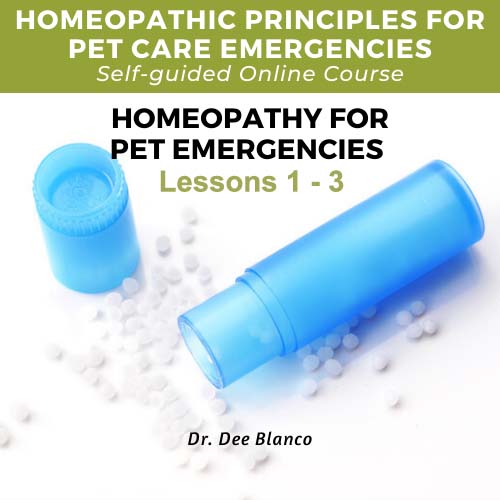
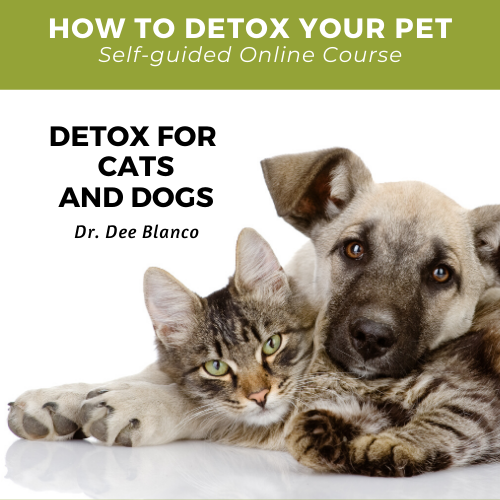
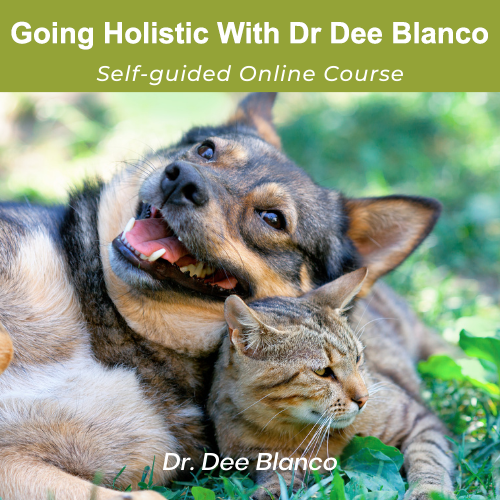
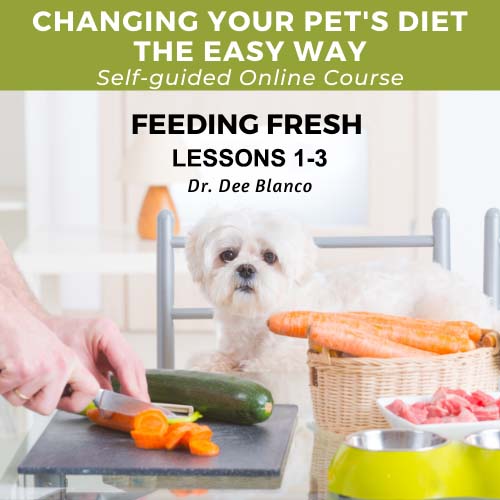
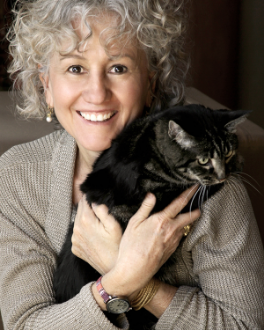


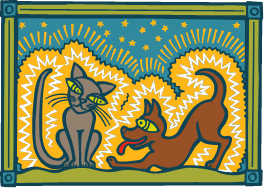
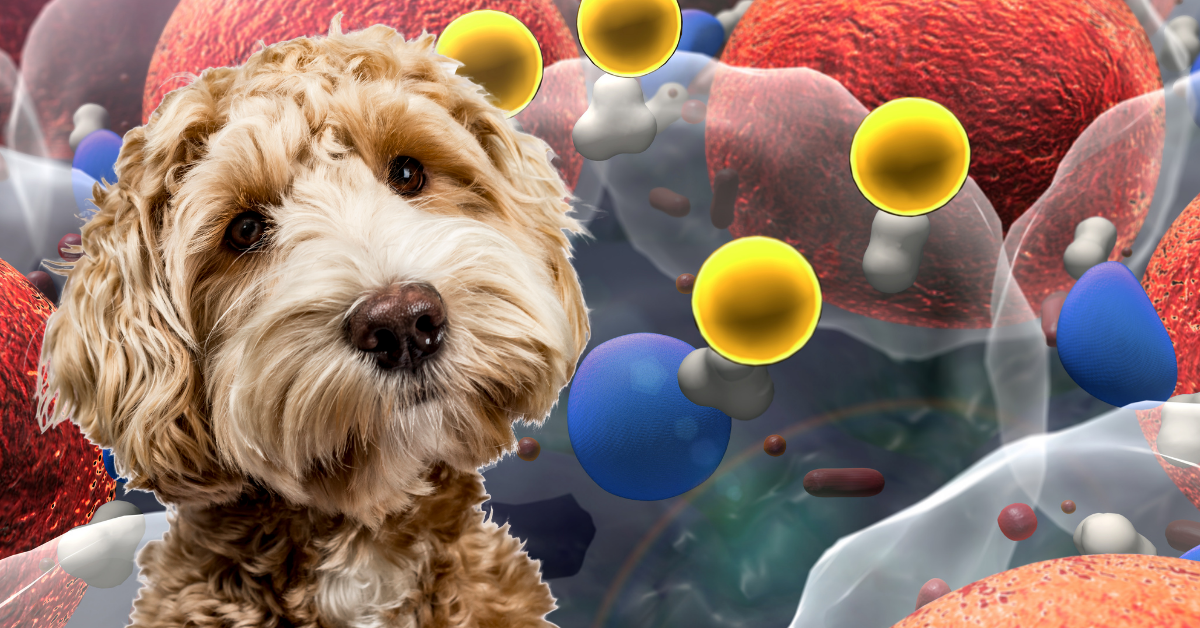
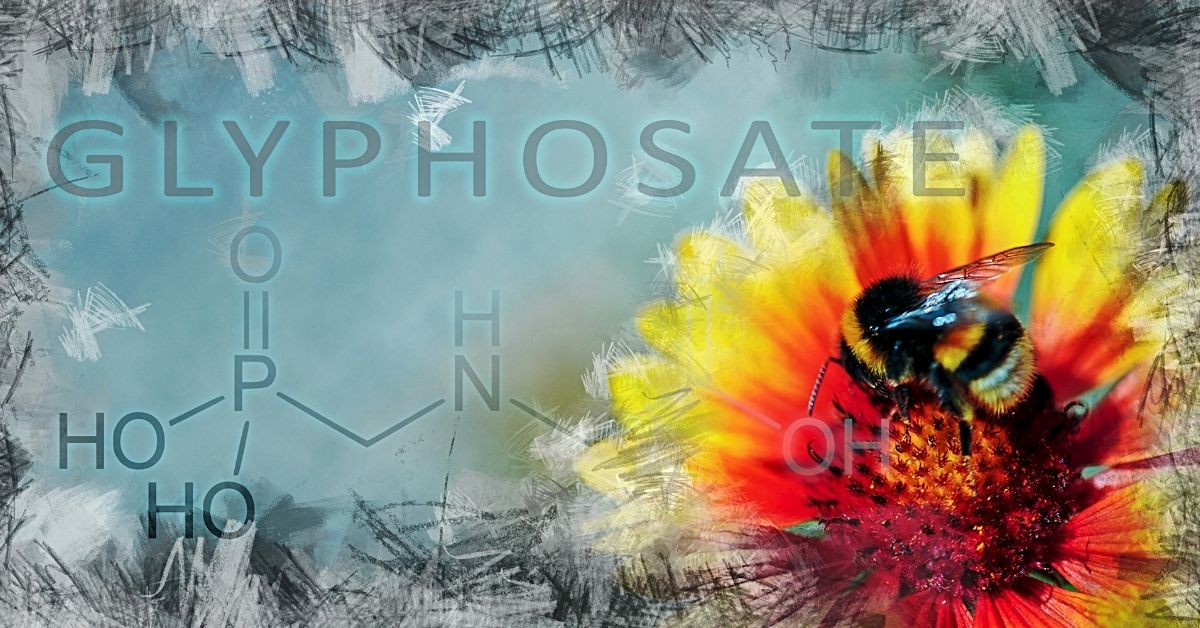
2 comments
Stephanie
All my dogs started eating each others stool.
Are they missing something in their diet?
They are on Proplan turkey and oatmeal plus a small amount of food I cook.
I am desperate to try anything to stop this behavior.
———
Dr Dee Blanco replied:
Hello Stephanie,
The first thing you need to do is stop feeding kibble. Here is a short blog <https://drdeeblanco.com/blogs/news/healthy-dogs-and-cats-always-choose-fresh-food-first?pos=1&psq=kibb&ss=e&v=1.0>. And another one here. <https://drdeeblanco.com/blogs/news/how-pet-food-labels-are-misleading?pos=1&psq=dry+food&ss=e&v=1.0>r
I do think this diet is deficient in vital life energy that the dry foods destroy and probably protein deficient because the dry foods are low in protein and then adding additional oatmeal which is low in protein makes the entire meal low in protein.
You can try all sorts of tricks and products to stop this process, but really – changing the diet to a more appropriate diet for dogs might stop this (it’s also a learned behavior), but will most certainly help their vitality and increase their longevity.
And I do appreciate feeding multiple dogs a high protein diet. But, making that commitment to do so, maybe taking our Feeding Fresh Course <https://drdeeblanco.com/products/feeding-fresh-course> should help you learn about how to do this without breaking the bank!
I hope this helps, Stephanie.
Dr Dee
All my dogs started eating each others stool.
Are they missing something in their diet?
They are on Proplan turkey and oatmeal plus a small amount of food I cook.
I am desperate to try anything to stop this behavior.
———
Dr Dee Blanco replied:
Hello Stephanie,
The first thing you need to do is stop feeding kibble. Here is a short blog <https://drdeeblanco.com/blogs/news/healthy-dogs-and-cats-always-choose-fresh-food-first?pos=1&psq=kibb&ss=e&v=1.0>. And another one here. <https://drdeeblanco.com/blogs/news/how-pet-food-labels-are-misleading?pos=1&psq=dry+food&ss=e&v=1.0>r
I do think this diet is deficient in vital life energy that the dry foods destroy and probably protein deficient because the dry foods are low in protein and then adding additional oatmeal which is low in protein makes the entire meal low in protein.
You can try all sorts of tricks and products to stop this process, but really – changing the diet to a more appropriate diet for dogs might stop this (it’s also a learned behavior), but will most certainly help their vitality and increase their longevity.
And I do appreciate feeding multiple dogs a high protein diet. But, making that commitment to do so, maybe taking our Feeding Fresh Course <https://drdeeblanco.com/products/feeding-fresh-course> should help you learn about how to do this without breaking the bank!
I hope this helps, Stephanie.
Dr Dee
Susan
Do you have any experience with homeopathy helping dogs with car anxiety? My dog resists getting in the car. I can not get her in alone as she is a golden retriever. We have not had an accident; I believe she is afraid of the bumps in the road and also she fears we are going to the vet. The only success I have had is having someone sit in back with her which is not always possible. Thanks
———
Dr Dee Blanco replied:
You can first try Aconite homeopathic a few minutes before getting in the car.
Also, do some short trips that are fun and involve treats! Go someplace that has a burger for her, or some yogurt – something fun!
Best of luck!
Do you have any experience with homeopathy helping dogs with car anxiety? My dog resists getting in the car. I can not get her in alone as she is a golden retriever. We have not had an accident; I believe she is afraid of the bumps in the road and also she fears we are going to the vet. The only success I have had is having someone sit in back with her which is not always possible. Thanks
———
Dr Dee Blanco replied:
You can first try Aconite homeopathic a few minutes before getting in the car.
Also, do some short trips that are fun and involve treats! Go someplace that has a burger for her, or some yogurt – something fun!
Best of luck!